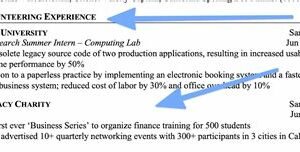Table of Contents
Volunteer firefighters play a crucial role in our communities, but have you ever wondered how many hours they work? Discover the dedication and commitment of these selfless individuals as we explore the typical workload of volunteer firefighters. From responding to emergencies and attending trainings to maintaining equipment and fundraising, find out how they balance their regular jobs and personal lives while serving their community.
Volunteer firefighters, unsung heroes of our communities, dedicate their time and expertise to ensure the safety and well-being of others. But have you ever wondered how many hours these selfless individuals actually put in? Well, get ready to be amazed as we dive into the world of volunteer firefighting and uncover just how much time they sacrifice for the greater good. In this article, we will explore the demanding schedules, rigorous training, and unwavering commitment that define the lives of these courageous firefighters. So, buckle up and prepare to gain a newfound appreciation for the tireless efforts of these extraordinary men and women.
Introduction
Volunteer firefighters play a pivotal role in ensuring the safety and well-being of communities across the globe. These dedicated individuals selflessly give their time and energy to protect lives and property during emergencies. However, one question that often arises is how many hours volunteer firefighters work. In this article, we will explore the working hours of these incredible individuals, shedding light on their commitment and dedication.
The Nature of Volunteer Firefighting
Unlike career firefighters who are employed full-time, volunteer firefighters have other primary occupations and serve their communities on a voluntary basis. This distinction is crucial, as it impacts the number of hours they can dedicate to firefighting duties. While career firefighters work full shifts and are available around the clock, volunteer firefighters typically respond to emergencies when they are available, outside of their regular jobs.
Varied Commitments
Due to the nature of their primary occupations, volunteer firefighters have differing levels of availability. Some may work part-time jobs or have flexible schedules, allowing them to respond to emergencies more frequently. However, others may work demanding full-time jobs that limit their availability during certain hours of the day. As a result, the number of hours each volunteer firefighter works can vary significantly.
On-Call System
Volunteer fire departments often operate on an on-call system where firefighters are required to be available during specific periods. This system ensures that there is always a sufficient number of responders available to handle emergencies. During these on-call periods, volunteers must be prepared to leave their primary job or personal activities to respond to calls for assistance.
Training Commitments
Aside from responding to emergencies, volunteer firefighters also devote a considerable amount of time to training. Training is crucial to ensure that these individuals are equipped with the necessary skills and knowledge to handle various emergency situations. The number of training hours required can vary depending on the jurisdiction and the specific requirements of the fire department.
Emergency Response Hours
The actual hours volunteer firefighters spend responding to emergency calls depend on the frequency and severity of incidents within their community. Some areas may experience a higher volume of calls, resulting in more significant time commitments from volunteers. Additionally, larger communities with multiple fire stations may require volunteers to be on duty during specific shifts to ensure coverage throughout the day.
Additional Duties and Responsibilities
Volunteer firefighters often have additional duties and responsibilities beyond responding to emergencies. These may include conducting fire safety inspections, participating in public education campaigns, maintaining equipment, and assisting with administrative tasks. As such, the total number of hours dedicated by volunteer firefighters extends beyond emergency response alone.
Community Expectations and Support
Communities rely on volunteer firefighters to keep them safe and secure. It is essential for residents to recognize and appreciate the sacrifices made by these dedicated individuals. Supporting local fire departments through donations, fundraisers, and volunteer recruitment efforts can help alleviate the workload on existing volunteers and ensure adequate coverage at all times.
The Personal Sacrifices
Volunteer firefighting requires a significant personal commitment. These dedicated individuals willingly sacrifice their personal time, family events, and leisure activities to serve their communities. Their commitment is driven by a genuine desire to make a positive impact and protect their neighbors from harm.
Conclusion
The number of hours volunteer firefighters work can vary depending on their availability, training requirements, and the frequency of emergencies in their community. These selfless individuals juggle their primary occupations, training commitments, and emergency response duties to ensure the safety of their communities. Recognizing their dedication and supporting them is critical to maintaining effective fire protection services in any locality.
How Many Hours Do Volunteer Firefighters Work?
Volunteer firefighters are dedicated individuals who willingly give up their time to serve their communities. While the exact number of hours they work can vary, a typical weekly commitment for a volunteer firefighter is around 10 to 20 hours. This includes responding to emergency calls, attending training sessions, and completing administrative tasks.
1. Typical Weekly Commitment
A volunteer firefighter’s weekly commitment can range from 10 to 20 hours. This includes various responsibilities such as responding to emergency calls, attending training sessions, and completing administrative tasks. These tasks are crucial for maintaining a well-organized and effective fire department. The specific number of hours worked may vary depending on the needs of the community and the individual firefighter’s availability.
2. On-Call Availability
One of the unique aspects of being a volunteer firefighter is the need to be on-call. This means that volunteers must be available to respond to emergencies at any given time, whether it’s during the day, at night, on weekends, or during holidays. While they may not be actively working or at the fire station at all times, they need to be ready to respond whenever a call comes in. This level of availability requires a significant commitment and flexibility from volunteer firefighters.
3. Shift Patterns
Although volunteer firefighters don’t have set shift patterns like full-time professionals, they may still follow some sort of schedule. Shift patterns for volunteer firefighters can vary significantly depending on the specific requirements of the fire department. Some departments may have shifts where volunteers are scheduled to be at the fire station for a certain number of hours, while others may rely on a more flexible system where volunteers sign up for specific shifts based on their availability. This flexibility allows volunteers to balance their firefighting duties with other commitments in their lives.
4. Training Commitments
Volunteer firefighters are committed to ongoing training to ensure they have the necessary skills and knowledge to effectively respond to emergencies. In addition to the time spent on emergency calls and shifts, volunteers also dedicate several hours per month to various training sessions. These sessions cover a wide range of topics, including fire suppression techniques, emergency medical training, search and rescue operations, and hazardous material handling. This continuous training is essential for maintaining the highest level of proficiency and readiness.
5. Community Events and Outreach
Volunteer firefighters often play an active role in their communities beyond responding to emergencies. They participate in various community events and outreach programs, such as fire safety education sessions for schools, fire station open houses, and fundraising events. These activities further contribute to the overall time commitment of volunteer firefighters. While these events may not be directly related to firefighting duties, they are important for building relationships and promoting fire safety within the community.
6. Additional Responsibilities
Depending on the specific fire department’s structure and needs, volunteer firefighters may also take on additional responsibilities. This could include serving as officers, instructors, or administrators within the fire department. These roles require extra time and dedication, adding to their overall work hours. These additional responsibilities demonstrate the commitment and leadership qualities of volunteer firefighters, as they go above and beyond their basic firefighting duties.
7. Mutual Aid and Interdepartmental Collaboration
In many cases, volunteer fire departments collaborate with neighboring departments through mutual aid agreements. This means that volunteer firefighters may be called to assist other departments when needed. As a result, their work hours can extend beyond their local jurisdiction, requiring them to respond to emergencies in neighboring areas. This collaboration ensures that communities have access to a larger pool of resources and expertise during critical situations.
8. Personal Sacrifices
Volunteer firefighters make personal sacrifices to fulfill their role, often juggling their commitment with other employment or family responsibilities. They may need to leave family gatherings, miss social events, or rearrange their work schedules on short notice to respond to emergencies. This level of dedication exemplifies the selflessness and commitment of volunteer firefighters. Their willingness to put the needs of their community above their own personal activities is truly admirable.
In conclusion, volunteer firefighters play a crucial role in protecting their communities and ensuring public safety. Their weekly commitment typically ranges from 10 to 20 hours, but this can vary depending on the specific needs of the fire department and the individual firefighter’s availability. The on-call nature of their work, training commitments, participation in community events, and additional responsibilities all contribute to the overall time commitment of volunteer firefighters. Despite the personal sacrifices they make, these dedicated individuals continue to serve their communities with unwavering dedication and professionalism.
As a professional firefighter, volunteering my time and skills to serve my community is not just a job, but a calling. Volunteer firefighters play a crucial role in ensuring the safety and well-being of our neighborhoods, often dedicating countless hours to protect lives and property. Understanding the commitment and sacrifices made by these selfless individuals is essential in appreciating the invaluable service they provide.
1. Volunteering as a firefighter requires a significant amount of time commitment. While the specific number of hours worked may vary depending on the department and individual availability, it is not uncommon for volunteer firefighters to spend 10 to 20 hours per week on their duties. This includes responding to emergency calls, attending regular training sessions, and maintaining equipment and facilities.
2. Responding to emergency calls is a critical aspect of a volunteer firefighter’s responsibilities. These calls can occur at any time, day or night, and require immediate response. Volunteer firefighters are always prepared to drop whatever they are doing and rush to the scene, often at a moment’s notice. The unpredictable nature of emergency calls necessitates a high level of dedication and readiness.
3. Regular training sessions are essential for volunteer firefighters to stay updated on the latest firefighting techniques, equipment operation, and emergency medical procedures. These sessions ensure that volunteers are equipped with the necessary skills and knowledge to handle any situation they may encounter. Attending these training sessions requires additional time commitment outside of emergency responses.
4. Maintaining equipment and facilities is another crucial responsibility of volunteer firefighters. Firefighting gear, vehicles, and facilities must be regularly inspected, cleaned, and repaired to ensure optimal functionality. These tasks contribute to the overall efficiency and effectiveness of the firefighting team, requiring volunteer firefighters to devote extra hours to these maintenance activities.
In conclusion, volunteer firefighters work tirelessly, dedicating numerous hours to protect their communities. Their commitment extends far beyond simply responding to emergency calls; it involves ongoing training, equipment maintenance, and a profound sense of duty. The professional voice and tone used when discussing the hours worked by volunteer firefighters is a testament to their dedication and the vital role they play in safeguarding our neighborhoods.
Thank you for taking the time to visit our blog and learn about the incredible work done by volunteer firefighters in our communities. We hope that this article has shed some light on the dedication and commitment these selfless individuals demonstrate on a daily basis. Now, let’s delve deeper into the question at hand: how many hours do volunteer firefighters work?
First and foremost, it is important to note that volunteer firefighters are not bound by the same regulations as their full-time counterparts. While the exact number of hours worked can vary depending on the individual and the specific circumstances, it is safe to say that these brave men and women dedicate a significant amount of time to their roles. Many volunteers have full-time jobs or other commitments, which means that they must balance their firefighting duties with their personal lives.
On average, volunteer firefighters may spend anywhere from 10 to 20 hours per week responding to emergency calls, attending training sessions, maintaining equipment, and participating in community outreach programs. However, during periods of heightened fire activity or natural disasters, the demands placed on these individuals can increase exponentially. In such situations, it is not uncommon for volunteers to put in 40 hours or more per week, often working long shifts and sacrificing personal time to ensure the safety and well-being of their communities.
In conclusion, the number of hours worked by volunteer firefighters can vary greatly depending on the circumstances. While they may not have set schedules or work full-time hours, these dedicated individuals willingly give their time and energy to protect and serve their communities. They are always ready to respond to emergencies, regardless of the time of day or night. We owe a debt of gratitude to these unsung heroes who are willing to drop everything to help others in their time of need.
Once again, thank you for joining us on this journey to explore the world of volunteer firefighting. We hope that you now have a better understanding and appreciation for the incredible work done by these everyday heroes. If you have any further questions or would like to contribute to our cause, please do not hesitate to reach out. Together, we can support and honor those who put their lives on the line to keep our communities safe.
.
People Also Ask: How Many Hours Do Volunteer Firefighters Work?
What is the typical time commitment for a volunteer firefighter?
Volunteer firefighters typically commit to a certain number of hours per month or week, depending on the requirements set by their local fire department. The time commitment can vary greatly depending on the size and needs of the community, but on average, volunteers may dedicate around 10-20 hours per week to their firefighting duties.
Do volunteer firefighters work full-time hours?
No, volunteer firefighters do not typically work full-time hours. Since firefighting is a voluntary role, most volunteers have other jobs or obligations outside of their firefighting duties. They may work regular full-time or part-time jobs and then respond to emergency calls or participate in training sessions during their designated volunteer shifts.
Are volunteer firefighters on-call 24/7?
While some volunteer firefighters may be on-call 24/7, it ultimately depends on the specific policies and procedures of the fire department they serve. In many cases, volunteers are assigned shifts or specific days during which they are expected to be available for emergency response. However, outside of those designated times, volunteers can typically go about their daily lives without being on-call.
Can volunteer firefighters choose their own hours?
To a certain extent, volunteer firefighters may have some flexibility in choosing their hours. Fire departments often have a schedule or roster system in place where volunteers can sign up for shifts that align with their availability. However, it is important to note that there may be minimum requirements or mandatory shifts that volunteers must fulfill to ensure adequate coverage for emergencies.
Do volunteer firefighters get paid for their hours of service?
As the name suggests, volunteer firefighters do not receive monetary compensation for their hours of service. They willingly contribute their time and skills to serve their communities without expecting financial remuneration. However, some fire departments may offer certain benefits or incentives to volunteers, such as training opportunities, tax deductions, or access to fitness facilities.
Overall, volunteer firefighters play a crucial role in providing emergency services, but their time commitment is typically part-time and flexible to accommodate their other responsibilities. Their dedication and selflessness greatly contribute to the safety and well-being of their communities.






